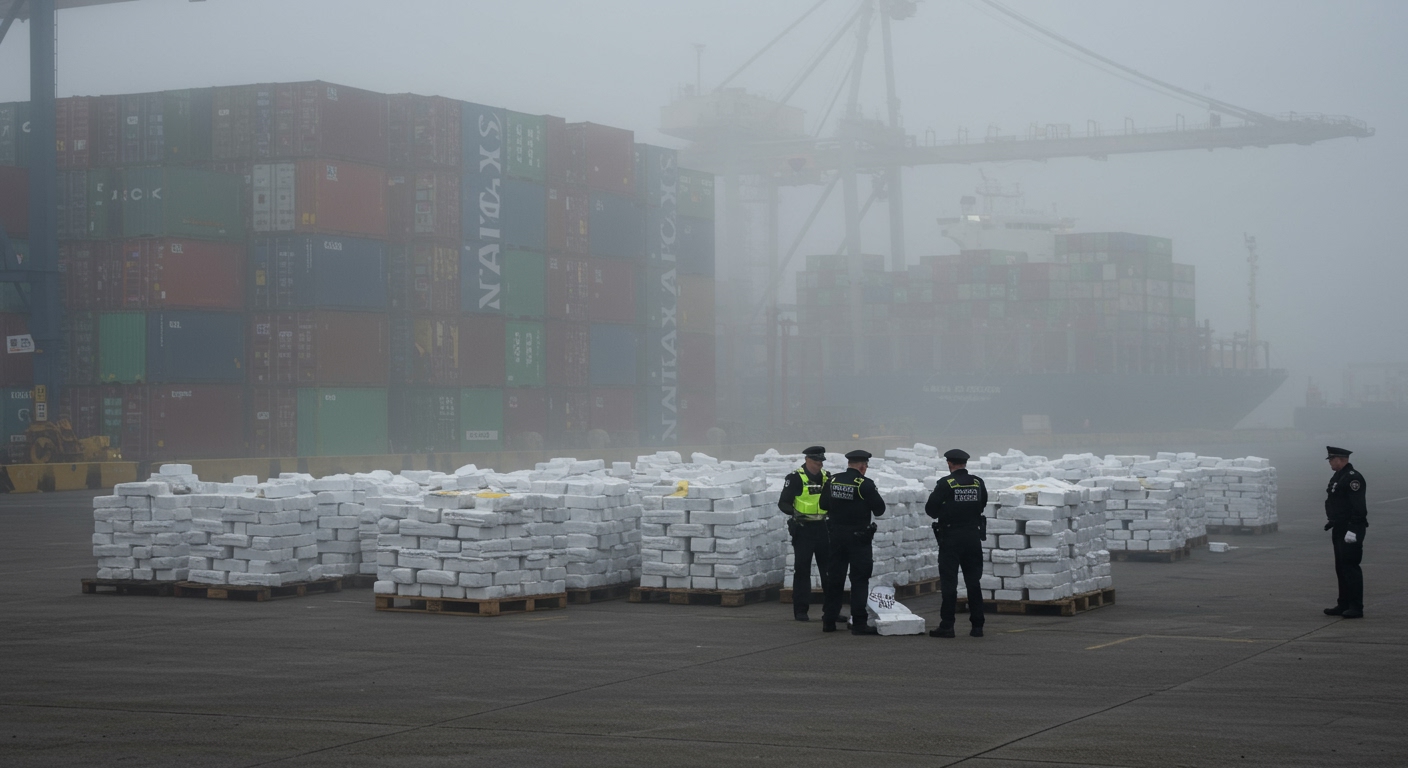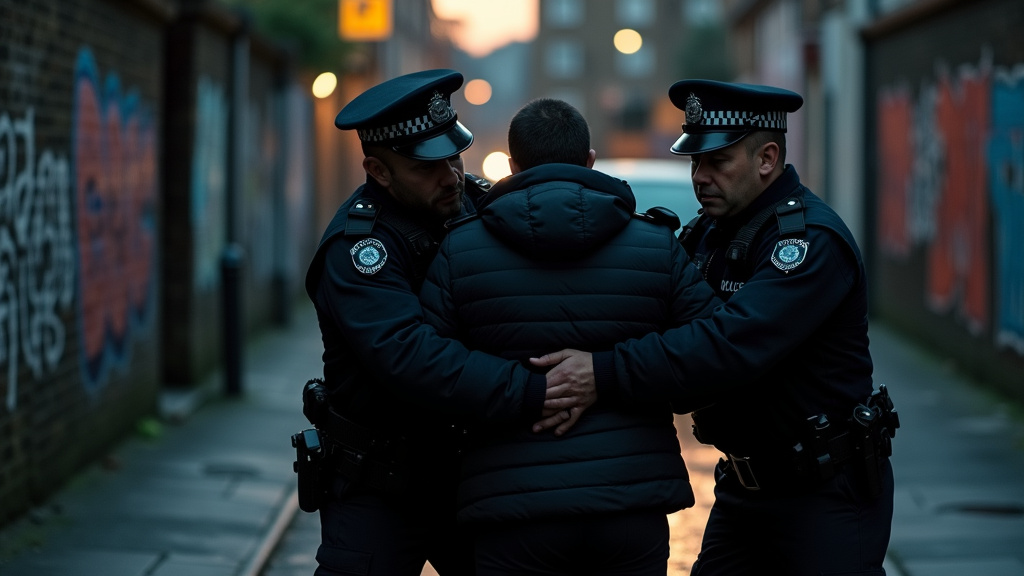UK authorities have intercepted a significant consignment of cocaine, weighing 2.4 metric tons with an estimated street value exceeding £96 million (US$132 million), at London Gateway port. The massive seizure, described by Britain’s interior ministry, the Home Office, as the sixth-largest cocaine haul ever recorded in the United Kingdom, occurred on Saturday, June 28, 2025. The Class A drugs were discovered aboard a vessel that had arrived from Panama, highlighting the persistent threat posed by international drug trafficking networks to the UK.
Operation Details and Intelligence
The operation leading to the discovery was based on sophisticated intelligence, underscoring the critical role of proactive surveillance and information gathering in disrupting organized crime. Border Force officers, part of the UK’s frontline defence against illegal goods and immigration, conducted the search that uncovered the extensive quantity of cocaine. London Gateway port, located east of the British capital, is one of the UK’s major deep-sea ports, handling vast volumes of container traffic from around the globe. Its strategic importance makes it a potential target for traffickers attempting to smuggle illicit substances into the country.
Speaking on the success of the operation, Charlie Eastaugh, U.K. Border Force Maritime director, lauded the efforts of the officers involved. “This seizure represents a significant blow to the criminal networks attempting to flood our streets with this destructive drug,” Eastaugh commented. “Our teams work tirelessly, often using complex intelligence, to identify and intercept these shipments before they can reach communities across the UK.”
Context of the Seizure
The scale of this particular seizure places it among the most substantial ever made by UK authorities. The Home Office confirmed it ranks as the sixth-largest on record for cocaine. While specific details regarding the concealment method or the vessel’s final destination beyond the UK port were not immediately released, the sheer volume points to an attempt by major transnational criminal organizations to import drugs on an industrial scale.
The estimated value of the consignment, £96 million, fluctuates based on purity and potential street pricing, but it represents a considerable loss for the criminal enterprises involved and a clear indicator of the profitability driving such dangerous ventures. The operation demonstrates the capacity of UK law enforcement and border agencies to conduct successful intelligence-led interventions against high-value drug trafficking.
Broader Implications and Market Dynamics
The seizure comes amidst ongoing concerns about the prevalence of cocaine use in the United Kingdom. The National Crime Agency (NCA), which leads the UK’s fight against serious and organized crime, identifies Britain as one of Europe’s largest markets for cocaine. This high demand fuels the trafficking routes targeted by operations like the one at London Gateway.
The human cost of this market is starkly illustrated by recent statistics. Figures show that cocaine-related deaths in England and Wales increased significantly, by 31%, between 2022 and 2023. This alarming rise underscores the devastating impact of cocaine availability on public health and safety, adding urgency to the efforts of law enforcement and health authorities to tackle both supply and demand.
Ongoing Fight Against Drug Trafficking
Combating the importation of Class A drugs like cocaine remains a top priority for the UK government and its law enforcement agencies. The Home Office oversees the strategic approach to tackling drug crime, working closely with operational bodies such as Border Force and the NCA.
Maritime routes, due to the vast volumes of trade traffic, continue to present a complex challenge for interdiction efforts. Successes like the June 28th seizure at London Gateway are crucial in disrupting the supply chain, but the scale of the problem necessitates sustained investment in intelligence capabilities, technology, and international cooperation to counter the adaptability of criminal networks.
The interception of 2.4 metric tons of cocaine at London Gateway port on June 28, 2025, serves as a powerful reminder of the persistent and significant threat posed by international drug trafficking. It highlights the dedication and effectiveness of UK authorities, particularly Border Force, in protecting the nation’s borders and communities from illegal drugs, while also underscoring the broader societal challenges linked to the demand for cocaine in the UK.





